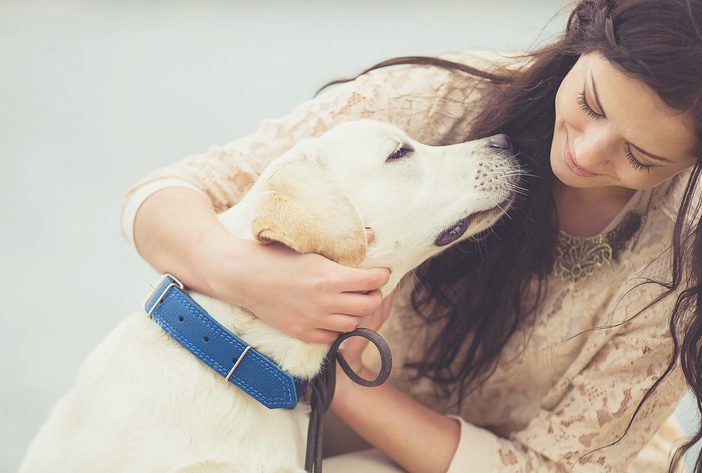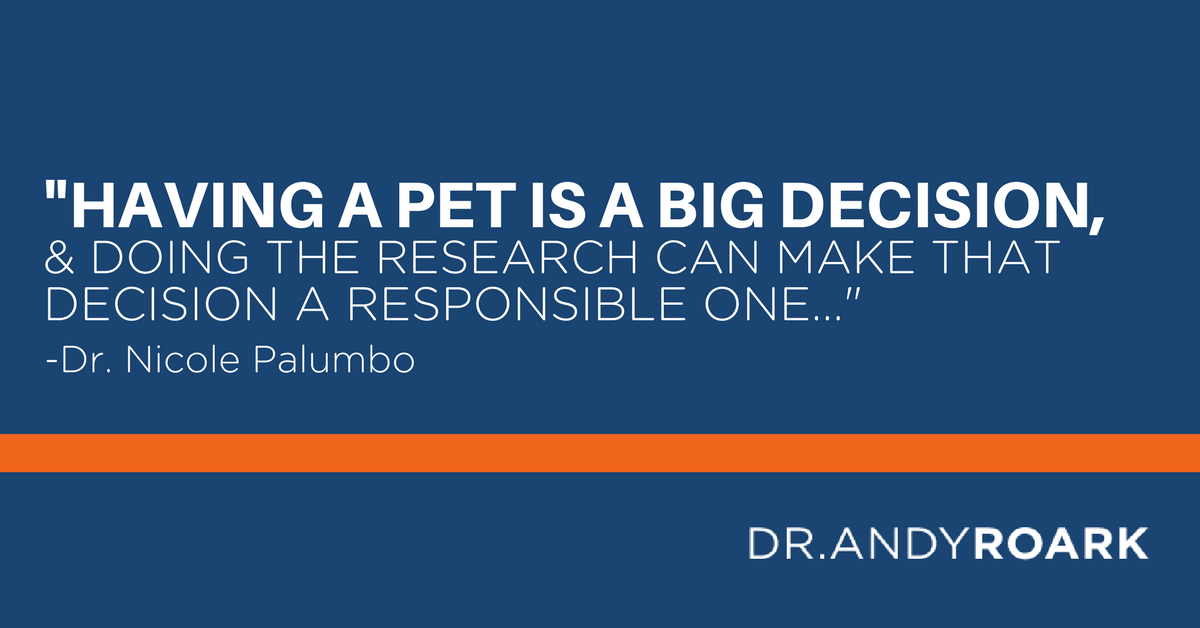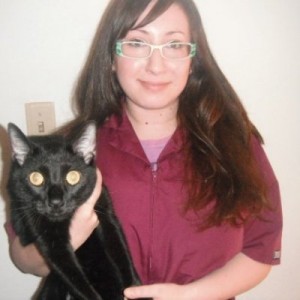

I don’t think the majority of irresponsible pet owners intentionally set out to frustrate us. Some of these pet owners just want to live their dream of owning a special breed or rescuing animals in dire need. But in those quick decisions we get clients that don’t understand how much money it takes to really care for those pets.
Becoming a pet owner should never be as easy as a decision to have soup or a sandwich. To us, when you make that decision you have made a lifelong commitment. And when you abandon that commitment or unintentionally harm that commitment, we feel like failures. Having a pet is a big decision and doing the research can make that decision a responsible one versus an irresponsible one.
Here is a checklist that can help you decide if pet ownership is the right decision for you at this point in your life:
1. Research your breed! You may want a beautiful Weimaraner but live in a small one bedroom apartment and work 16 hours a day. This decision can impact your relationship with your pet and your pocketbook since the majority of these cases need to be put on anxiety medications and need special training.
2. Budget for basic needs for that pet. Too many times have I seen a 2000 dollar dog come in for vaccines and the owner cannot afford the basics because they spent all their money on the dog.
3. Save money and realize that a Pomapoo or Puggle or whatever other “designer” breed you want is just a mutt and should never cost as much as a purebred dog. In fact, continuing to buy these dogs just perpetuates the breeding of them, which is only helping the “breeders” pocketbook.
4. Make sure you have enough time to invest in training your new dog or puppy, especially if you have small children. Too many animals are given away because they “nipped” at the child because they weren’t properly trained (both child and dog).
5. Every pet should be on heartworm prevention, flea and tick prevention, and visit the vet annually for vaccines and a checkup. We see so many dogs come in multiple times per year for parasite flare-ups or flea dermatitis when the cost of prevention is much less than having to treat the repercussions infestations.
6. Have an emergency plan! Things happen and unfortunately emergencies cost money. We recommend either investing in pet insurance early or having a credit card specifically for pet emergencies. We know not everyone can afford the highest standard of medicine, but basic care doesn’t have to break the bank.
7. Take advice from pet stores, friends, online blogs, etc with a grain of salt. Unless these people are veterinarians, their advice can actually harm your pet. I have seen blogs claiming that coconut oil cures cancer; this is simply infuriating and wrong. Be smart with the advice you take.
8. Don’t think that a pocket pet or reptile will be an easier choice of pet. These animals need a lot of monitoring, specific expensive equipment and food, and in general can be harder to keep healthy.
9. The pet you choose is not a throwaway animal. If you constantly move and are unsure about if you will be able to keep your pet throughout your life, then it might be best not to adopt that pet. Too many animals wind up in shelters because owners have to move away or can’t take the pet with them.
10. Save money for spaying and neutering! If your pet doesn’t come spayed or neutered before you adopt it please be a smart owner and get it done as soon as you can. You can prevent pregnancy, certain types of cancers, and emergencies like pyometras (infection of the uterus).
These are only a few guidelines but they can really help you decide if you are ready for pet ownership. We hate to see animals suffer because owners did not think about their decisions. We are here to help you make the best decision you can for the animal you adopt.
The views and opinions expressed in this article are those of the author and do not necessarily reflect the position of the DrAndyRoark.com editorial team.
 ABOUT THE AUTHOR
ABOUT THE AUTHOR
Dr. Nicole Palumbo is a 2012 graduate from University of Illinois. She is originally from the south side of Chicago but chose to move to Northwest Pennsylvania for her first job out of veterinary school, where she currently is still employed. She works with small animals, exotics, and also volunteers her time at the local wildlife rescue, typically performing surgeries and exams on the many raptors that are admitted to the facility. With time she hopes to focus more time on wildlife medicine and also obtain specialization in feline medicine.